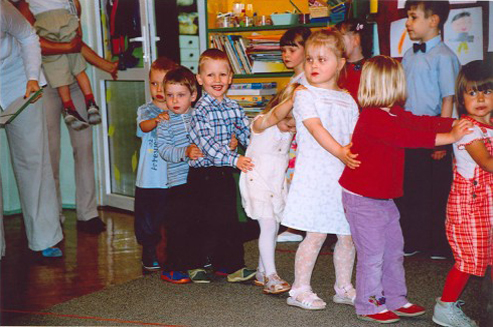The connection of Polish people and Spain is also very special. In general, we are perceived well by the Spaniards who often call us “Spaniards of the North”. This expression, whether right or not, is good evidence for both our integration within Spanish culture, and the fact that we were able to create a new collective identity and combat some of the stereotypes about Polish people.
All of us, who decided to stay in Spain, did not do it only for economic reasons, but also because the Spanish culture is familiar to us and so it is easier to find our feet. It is a condition without which we would not be able to imagine any future for our families here. However, nostalgia and memories make us want to keep Polish culture, which is an inseparable part of ourselves. In this sense, the Polish weekend-schools play an indispensable role in providing proper upbringing and education of the next generation of Poles born in Spain. Moreover, they help us, the adults, to maintain continuous contact with Polish culture, without which we would probably quickly forget of our cultural foundations and the value of Polish culture.
An example is the Polish Saturday School in Vicálvaro, Madrid. This institution, founded in 2009, has the same structure as the schools in Poland, it celebrates the same holidays and is a meeting place for both children and their parents. The school is also a kind of platform for bilateral communication. It helps families, who struggle with similar problems and challenges, to share their experiences of emigrant life. The school also offers a Polish language course for Spanish people, so that they can understand better the culture of their partners and actively participate in the joint, multicultural education of their children.
The truth is that it is parents’ and teachers’ motivation that drives the functioning of the institution and ensures its continuity. Krystyna, mother of two girls who attend the school, says: “Polish school is very necessary because it is the only place where our children can meet with their peers from Poland. It is obvious that most of the traditions we pass on at home, among family, and we do not want our children to forget about it or to spend their holidays going to discos. Above all, the most important is to ensure their education within the Polish culture, because they cannot learn it at Spanish schools. For example, they do not know what a Christmas tree is. Even though we talk about it at home, they need to experience and see it with their own eyes (…)”.
The immigrants from all over the world, we are faced with the same challenge when it comes to creating a kind of “the golden rule”. This rule both has to allow us to integrate in countries we live in, and, at the same time, do not let us forget our tradition and make it easier to pass it on to our children and society we live in. As the collaborators of Polish weekend-schools, we strongly believe that it can be achieved through education and promotion of the most important values for Polish tradition. The education and everyday experiencing of both Polish and Spanish cultures is the best prove for our real integration here.
Co-authors:
Joanna Lizut is a press correspondent covering a wide range of topics related to polish immigration topics, among others. She is also a teacher in polish weekend schools and she is very much involved in broadcasting of polish culture in Spain.
Zuzanna Piłasewicz lives and works in Madrid. She is involved in Polish immigration matters since 2009, when she started to work as a teacher and lector of Polish language. She is also a mother of Alek, born in Spain, who is a 1st year student in Polish Saturday School of Jan Dlugosz in Vicalvaro, Madrid.
Photo from the archive of authors.


